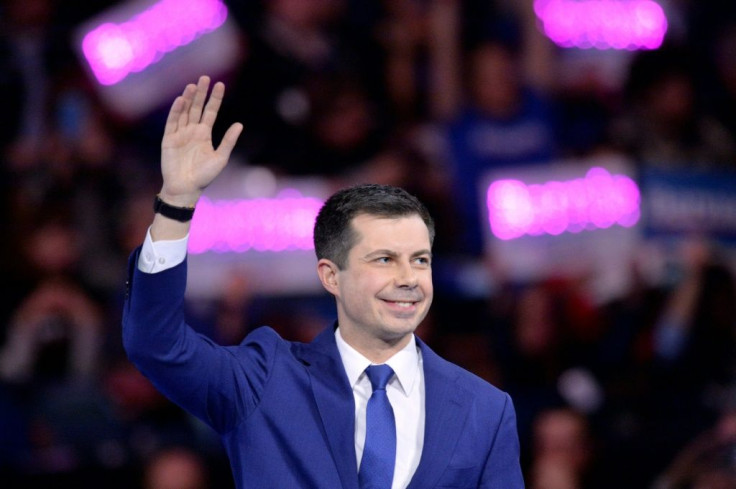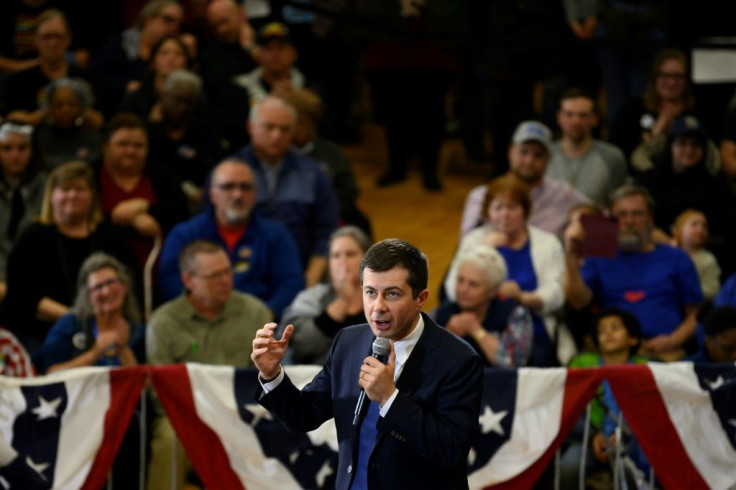Election 2020: Pete Buttigieg Drops Out Of Democratic Presidential Race

KEY POINTS
- Former Indiana mayor Pete Buttigieg will no longer contest the Democratic Party's nomination for president
- He formally announced his withdrawal in his home town of South Bend, Indiana
- He's still seen as good vice president material
Pete Buttigieg on Sunday ended his brave run to become U.S. president, winning the Iowa caucus and still looking like a contender until the Nevada caucus, and will make his withdrawal formal in an announcement in his home town of South Bend, Indiana.
Buttigieg, or Mayor Pete, will formally end his campaign to become the Democratic Party's presidential nominee in his home town Sunday evening. He twice served as mayor of South Bend. One of Buttigieg's senior aides confirmed the withdrawal to CNBC.
If events had turned differently, the moderate Buttigieg might well have become the youngest candidate for president and the country's first homosexual president. But consistently low polling numbers and a consistent failure to draw support from African Americans following disappointing showings in New Hampshire, Nevada and South Carolina left him no clear path forward.
While doing well among white and younger voters, Buttigieg failed to win over much support from African Americans, which comprise a sizeable voting bloc in the Democratic Party; and among other minority voters, especially Hispanics.
His problem with African Americans seems to spring from his being unknown to most of them. He stunningly registered zero percent among black South Carolina Democrats in a Quinnipiac University poll released in late November 2019. He later took a beating in a debate where two of the African American moderators said he needed on-the-job training in talking to black audiences.

Unlike former vice president Joe Biden that spent four decades cultivating the black vote in South Carolina and in other states with large African American voting populations, Buttigieg only went national after he declared his candidacy for the nomination on April 14, 2019.
Political pundits point to the fact no Democrat in modern times has won the party’s nomination without claiming majorities of black voters, and strong support from Hispanics.
It also became painfully clear after Buttigieg's fourth place finish in South Carolina, which also underscored his lack of any support among African Americans, he wasn't going to win them over on Super Tuesday on March 3. Buttigieg's failure to make any headway among African Americans was apparent in the Nevada caucuses where he finished a distant third, and in South Carolina.
It's not known which among the remaining six contenders Buttigieg will endorse but it certainly won't be the social democrat and frontrunner Sen. Bernie Sanders, I-VT. Buttigieg spent his last few weeks on the campaign trail blasting Sanders' extreme left wing policies and casting himself as the moderate alternative to Sanders. Former vice president Joe Biden is also an announced moderate whose points of view jibe with that of Buttigieg in some cases. There is still talk of Buttigieg being a strong candidate for vice president.
© Copyright IBTimes 2024. All rights reserved.





















